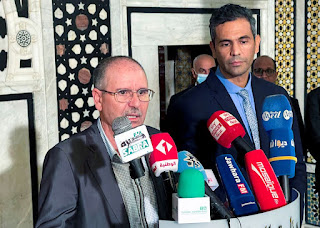Tunisian employment minister Nassreddine Nsibi said on Monday that the government is committed to implementing any deals it reaches with the country’s powerful UGTT union, such as on the minimum wage – even as the country faces a financial crisis.
Tunisia last week resumed talks with the International Monetary Fund on a loan package predicated on Tunis imposing painful and unpopular steps aimed at liberalising the economy.
International donors have also raised the need for broad support within Tunisia for reforms to help tackle corruption and waste, meaning the government is likely to need the backing of the UGTT, which represents 1 million workers and wields huge political clout, to secure an IMF deal.
On Monday, Prime Minister Najla Bouden and the government met with Noureddine Taboubi, the head of the UGTT, and other union officials to discuss the situation.
“There is an agreement that the government will implement previous agreements, including on the minimum wage. We will announce the details soon,” Nsibi told a news conference at the governmental palace.
Taboubi said that the first meeting with the government was positive and that agreements will be issued later.
The government last year approved a plan to raise the wages of about 700,000 employees in the public sector in addition to raising the national minimum wage.
The IMF has urged Tunisia to slash subsidies and its bloated public sector wage bill, however, as well as privatise loss-making state-owned enterprises.
Adding to the government’s problems, the UGTT last week rejected the idea of cutting subsidies, a stance that will complicate its efforts to reach a deal with the IMF.












